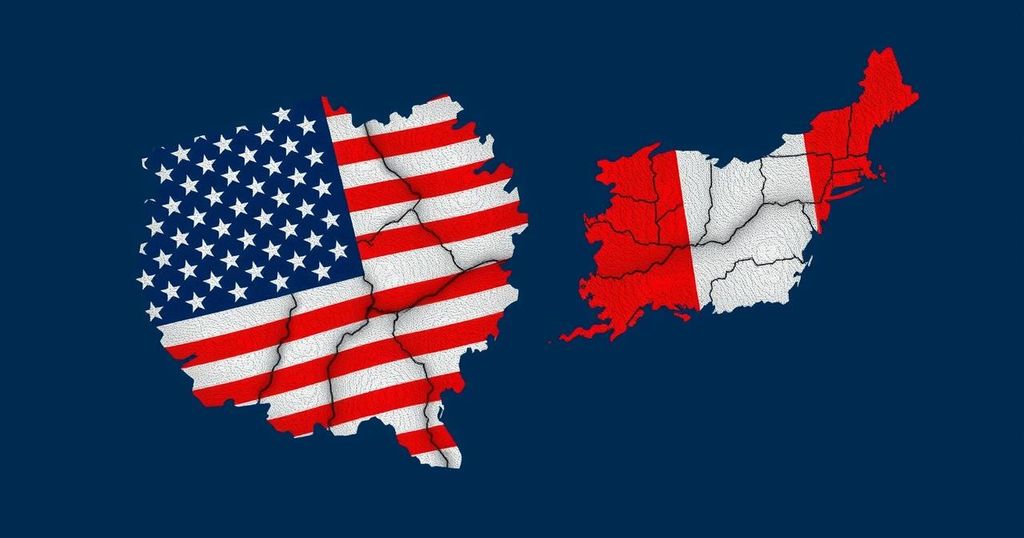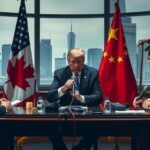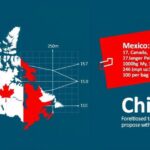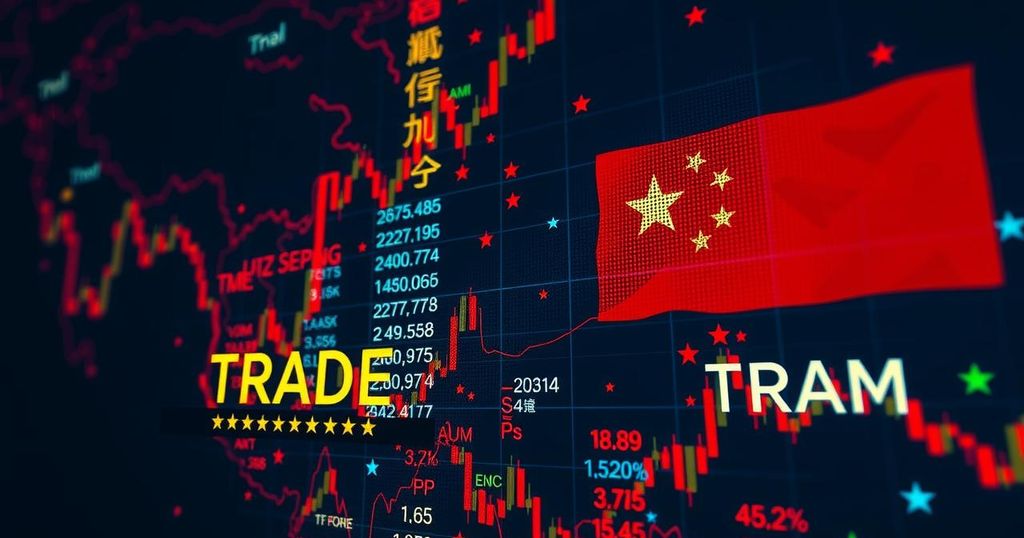Trump Proposes Tariffs on Canada, Mexico, and China Over Drug Trafficking and Immigration Issues
President-elect Trump threatens tariffs on Canada and Mexico, alleging insufficient action on drug trafficking and illegal migration. He proposes a 25% tariff on goods from these countries unless they address these issues and a 10% tariff on Chinese products. Economists warn that tariffs would ultimately increase costs for U.S. consumers, potentially straining trade relations under the U.S.-Mexico-Canada Agreement.
President-elect Donald Trump has issued a stern ultimatum to Canada and Mexico, proposing a sweeping 25% tariff on all goods unless these nations take decisive action to manage illegal drug trafficking, particularly fentanyl, and the unauthorized migration of individuals into the United States. In a statement shared via Truth Social, Trump underscored that these tariffs would commence on January 20 and remain in force until drug trafficking, especially the influx of fentanyl, and illegal immigration are curtailed, declaring this situation as an “invasion of our Country.”
In addition to this, President-elect Trump has warned about the imposition of a 10% tariff on products imported from China, citing the country’s role in facilitating the flow of illegal drugs. Trump has a long history of advocating for tariffs against trade partners he believes exploit the United States. The implementation of tariffs was a focal point during his initial term and remains a significant aspect of his current political campaign.
Canada and Mexico, being pivotal trading partners of the United States, are integral to the U.S.-Mexico-Canada Agreement, which aims to foster tariff-free trade among the three nations. Most economists caution that the financial burden resulting from tariffs ultimately shifts to American consumers, potentially leading to higher prices on imported goods.
The context surrounding President-elect Trump’s tariff threats is rooted in his longstanding stance on trade and immigration issues. Tariffs have historically been leveraged as a tool to address economic imbalances and perceived injustices in international trade. Trump’s perspective on utilizing tariffs is driven by a belief that certain trading partners exploit American markets, prompting him to call for protective measures to safeguard U.S. interests. The proposed tariffs against Canada, Mexico, and China signal a continuation of this approach, with implications for both domestic policy and international relations. The U.S.-Mexico-Canada Agreement was designed to replace NAFTA and enhance trade relations, yet Trump’s assertive stance towards tariffs could strain these relationships amid broader discussions on drug trafficking and immigration reform.
In summary, President-elect Trump’s announcement of potential tariffs against Canada, Mexico, and China reflects his firm approach to tackling illegal drug trafficking and immigration issues. These tariffs could significantly impact trade dynamics and consumer prices in the United States. Trump’s historical use of tariffs signals a return to familiar themes in his economic policy, aiming to assert control over trade relationships while attempting to address critical domestic challenges. As these discussions unfold, the repercussions for U.S. consumers and international relations will be closely observed.
Original Source: news.wfsu.org








Post Comment